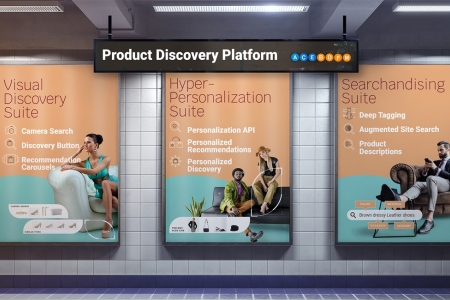Since generative AI hit the mainstream in early 2023, many furniture companies have grappled with how (if at all) to implement the tool in their business models. Given the industry’s reliance on consumer insights, data, and large-scale knowledge management, Thor Olof Philogène, the CEO and co-founder of insights platform Stravito – which has worked with furniture brands including La-Z-Boy – argues that every furniture business could benefit from a tailored generative AI solution …
What role does generative AI currently play in the furniture industry?
Many companies – if not all – are exploring generative AI, and we’re seeing that large and global enterprises in particular are taking a measured and cautious approach. Instead of diving into full-scale production projects right from the start, they begin with small pilot initiatives involving generative AI.
But generative AI is a natural partner for consumer insights, particularly for businesses in the furniture industry that are laser-focused on understanding customer needs and expectations, and bringing that understanding to all their employees. We anticipate the role of generative AI and the new capabilities it enables in the industry will only continue to increase over time.
As furniture brands navigate the potential implementation of generative AI tools, what should they prioritise (or avoid) to ensure long-term success?
Firstly, it’s important that furniture business executives consider that generative AI is still in its early stages of development, and take a thoughtful approach as a result. Furniture businesses need to identify real-life pain points that generative AI tools can effectively address. Implementing generative AI simply for the sake of using the technology, without a clear purpose, may lead to inefficiency resource allocation and limited effectiveness.
When it does come time for implementation, it’s crucial that furniture businesses make sure they only work with trusted vendors for AI solutions, and that the data they use in an AI-enabled system is handled in a secure and compliant manner. For furniture companies who are reliant on market and consumer research to make business decisions, it’s pivotal that any tool they implement only uses vetted data to generate AI-enabled answers – unlike open AI apps that pull from the public domain, or that might not process data in a compliant manner.
Additionally, during integration, furniture organisations must ensure that their generative AI tool is complemented by a human-run service layer. Implementing generative AI effectively requires a human component to ensure long-term value and ROI.
How does Stravito’s approach to generative AI cater to the needs of consumer-facing businesses – and furniture brands in particular?
Stravito is on a mission to simplify knowledge discovery and deliver software that ensures everyone in global, decentralised furnishing organisations can use market research and insights to better understand their customers – which is critical to the success of consumer-facing businesses.
With Stravito’s proprietary generative AI search engine – which supercharges the search experience to provide users with quicker insights in a more engaging and inspiring way – consumer-facing furniture brands have access to consumer knowledge at their fingertips in a way that is more seamless than ever before.
By creating a platform that helps large, consumer-facing furniture businesses create one central hub for all research, insights, and analytics data – making it available for everyone in the organisation – Stravito gives brands the resources needed to quickly act on insights and make impactful business decisions.
Stravito provides an excellent search experience that combines AI with a human-centric design to bring insights to global and decentralised teams around the world, with no convoluted manuals or training required. Similarly to apps such as Netflix and Spotify, Stravito also makes personalised content recommendations to each individual based on their market, language, job title, behaviour, and other signals.
What unique challenges do you see furniture brands facing? How can consumer insights and a customised approach to generative AI help solve them?
Furniture brands, and all consumer-facing retailers, are faced with the constant challenge of keeping up with consumer preferences. Based on the economy, location and cultural trends, consumer needs, expectations, and desires can be hard to see and follow, and insights and data analysis are crucial ways to keep up – but doing so is essential for business success and customer loyalty.
Consumer insights allow brands to actively understand how consumers are reacting to products, and what their preferences are. Generative AI takes this capability one step further by making it easier for users of the new tools to discover new information through the simplified, conversational interface made possible by generative AI technologies.
In what ways can the implementation of generative AI tools help furniture brands maximise profits and develop a better understanding of consumer expectations/ preferences?
Generative AI can superchange the technologies that are already delivering a positive impact on the furniture industry in a variety of ways. From a consumer preference perspective, democratised access within the organisation is crucial, and that can be catalysed by a generative AI tool.
Generative AI reduces the time spent on manually researching and analysing important information and responding to consumer preferences, opening up operational bandwidth to be spent on implementation and action, which is important for furniture brands looking to stay on top of trends and close to their consumers.
Prioritising consumer-centricity and customer data helps give businesses the upper hand. Research by McKinsey shows that organisations that leverage customer behavioural insights outperform peers by +85% in sales growth and more than +25% in gross margin.
With its heavy reliance on qualitative data, the furniture industry is in a unique position to accelerate consumer-centricity and impactful decisionmaking organisation-wide, with the increased insight that new generative AI solutions can provide – maximising returns and business success.
Will generative AI eliminate some job functions for human employees in the furniture industry? For data collection and consumer insights specifically, how might customised generative AI tools complement or eliminate human work?
We believe that in order to be successful, generative AI solutions should complement human intelligence, not replace it. Generative AI tools should be viewed as a huge asset for consumer-facing businesses, and can be leveraged to complement the work of employees to give them more time to delve into other projects.
For knowledge management specifically, combining generative AI capabilities and custom data can help to dramatically reduce the time spent on internal manual tasks like desk research and analysis of proprietary information. The time saved and the new insights gained from an ability to access data and insights more easily and quickly can result in a better return on data and insights, a more customer-centric organisation with better decision-making, more product innovation, and ultimately more opportunities, and increased revenue and profitability.
How do you think generative AI customisation will propel business operations for the furniture industry as the world gains a better understanding of how to leverage the technology?
Generative AI is currently in its early stages, but development in this area is happening at lightning speed. The implementation of generative AI solutions can provide furniture companies with incredible power and speed to sort large volumes of data, delivering a significant productivity boost, and promoting exploration and inspiration through a seamless interface.
I strongly believe that generative AI will eventually become a fully integrated aspect of the technology stack for large enterprises – especially for consumer-facing businesses like those in the furniture industry – enabling brands to be the most efficient and capable versions of themselves.
How will the implementation of custom generative AI solutions at the corporate level impact brick-and-mortar retail and ecommerce differently?
I believe it’s too early to tell. We’re in an exciting phase, crucial for building a deeper understanding of the technology and what we can do with it, but only time will tell what the long-term impact and applications for this new technology will be across different areas.
At Stravito, we believe that one fantastic opportunity for incorporating generative AI into the furniture industry centres around the enhanced efficiency, productivity and creativity among employees in furniture companies enabled by them discovering new information through the simplified, conversational interface made possible by generative AI technologies.
In Stravito’s case, our generative AI capabilities help brands access relevant data and insights more easily and quickly, resulting in a more customer-centric organisation with more informed decision-making, better product innovation, and thus more opportunity to increase revenue and profitability. No matter where customers are shopping, a generative AI-powered knowledge management tool will ensure that the brand has a clear understanding of what its customers want and what their preferences are.
Read more about AI in the furniture industry here.












